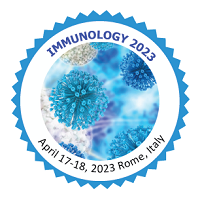Immunologic Techniques, Microbial Control and Therapeutics
Immunological techniques include both experimental methods to study the immune system and methods to generate or use immunological reagents as experimental tools. The most common immunological methods relate to the production and use of antibodies to detect specific proteins in biological samples. Various laboratory techniques exist that rely on the use of antibodies to visualize components of microorganisms or other cell types and to distinguish one cell or organism type from another. Immunologic techniques are used for: Quantitating and detecting antibodies and/or antigens, Purifying immunoglobulins, lymphokines and other molecules of the immune system, Isolating antigens and other substances important in immunological processes, Labelling antigens and antibodies, Localizing antigens and/or antibodies in tissues and cells, Detecting, and fractionating immunocompetent cells, Assaying for cellular immunity, Documenting cell-cell interactions, Initiating immunity and unresponsiveness, Transplanting tissues, Studying items closely related to immunity such as complement, reticuloendothelial system and others, Molecular techniques for studying immune cells and their receptors, Imaging of the immune system, Methods for production or their fragments in eukaryotic and prokaryotic cells.
Microbial control:
Control of microbial growth, as used here, means to inhibit or prevent growth of microorganisms. This control is achieved in two basic ways: (1) by killing microorganisms or (2) by inhibiting the growth of microorganisms. Control of growth usually involves the use of physical or chemical agents which either kill or prevent the growth of microorganisms. Agents which kill cells are called cidal agents; agents which inhibit the growth of cells (without killing them) are referred to as static agents. Thus, the term bactericidal refers to killing bacteria, and bacteriostatic refers to inhibiting the growth of bacterial cells. A bactericide kills bacteria, a fungicide kills fungi, and so on. In microbiology, sterilization refers to the complete destruction or elimination of all viable organisms in or on a substance being sterilized. There are no degrees of sterilization: an object or substance is either sterile or not. Sterilization procedures involve the use of heat, radiation or chemicals, or physical removal of cells.
Related Conference of Immunologic Techniques, Microbial Control and Therapeutics
5th International conference on Vaccines, Vaccination and Immunization
19th International Conference on Allergy and Clinical Immunology
5th International Conference on Immunology And Immunotherapy
Immunologic Techniques, Microbial Control and Therapeutics Conference Speakers
Recommended Sessions
- Immunogenicity and Immunotoxicology
- Allergy, Hypersensitivity and Asthma
- Antibiotics and Current Research
- Antibodies: Engineering and Therapeutics
- Autoimmune Diseases
- Bacterial Pathogenesis and Immunology
- Cancer and Tumor Immunobiology
- Cellular Immunology and Latest Innovations
- Clinical Immunology: Current & Future Research
- Cytokines and Current Research
- Epidemiology
- Immune Tolerance
- Immuno Cytochemistry, Immunohistochemistry and Immunobiology
- Immunodeficiency
- Immunoinformatics and Systems Immunology
- Immunologic Techniques, Microbial Control and Therapeutics
- Immunology and Diabetes
- Immunotherapy & Cancer Immunotherapy: From Basic Biology to Translational Research
- Immunotoxicology
- Infectious Diseases, Emerging and Reemerging diseases: Confronting Future Outbreaks
- Inflammation and Therapies
- Innate Immunity: An Emerging Science
- Molecular and Structural Immunology
- Molecular biology
- Neuroimmunology
- Paleoviruses, Viral infections and Viral Replication
- Parasite Immunology
- Pediatric Immunology
- Transplantation Immunology
- Upheavel in Cellular Immunology
- Vaccines and Immunotherapy
- Veterinary Immunology and Immunopathology
- Viral Immunology: Emerging and Re-emerging Diseases
- Viral Life cycle and Viro therapy
- Virus Evolution
Related Journals
Are you interested in
- Advances in Molecular Immunology - ALLERGY 2024 (France)
- Allergen Identification and Characterization - ALLERGY 2024 (France)
- Biomarkers for Allergy Diagnosis and Treatment - ALLERGY 2024 (France)
- Case Studies in Allergy Diagnosis and Management - ALLERGY 2024 (France)
- Clinical Trials and Translational Research in Allergy and Immunology - ALLERGY 2024 (France)
- Digital Health and Telemedicine in Allergy Care - ALLERGY 2024 (France)
- Epidemiology and Population Studies in Allergic Diseases - ALLERGY 2024 (France)
- Immune Responses to Vaccination - ALLERGY 2024 (France)
- Immunogenetics and Allergic Susceptibility - ALLERGY 2024 (France)
- Immunological Aspects of Drug Allergies - ALLERGY 2024 (France)
- Immunological Basis of Food Allergy - ALLERGY 2024 (France)
- Immunological Mechanisms in Autoimmune Diseases - ALLERGY 2024 (France)
- Immunomodulation in Allergy Management - ALLERGY 2024 (France)
- Immunopathogenesis of Allergic Diseases - ALLERGY 2024 (France)
- Immunotherapy for Allergic Conditions - ALLERGY 2024 (France)
- Inflammatory Pathways in Asthma and Allergic Rhinitis - ALLERGY 2024 (France)
- Mechanisms of Immunodeficiency Diseases - ALLERGY 2024 (France)
- Novel Therapeutic Approaches for Allergic Disorders - ALLERGY 2024 (France)
- Role of Microbiota in Allergic Disorders - ALLERGY 2024 (France)

